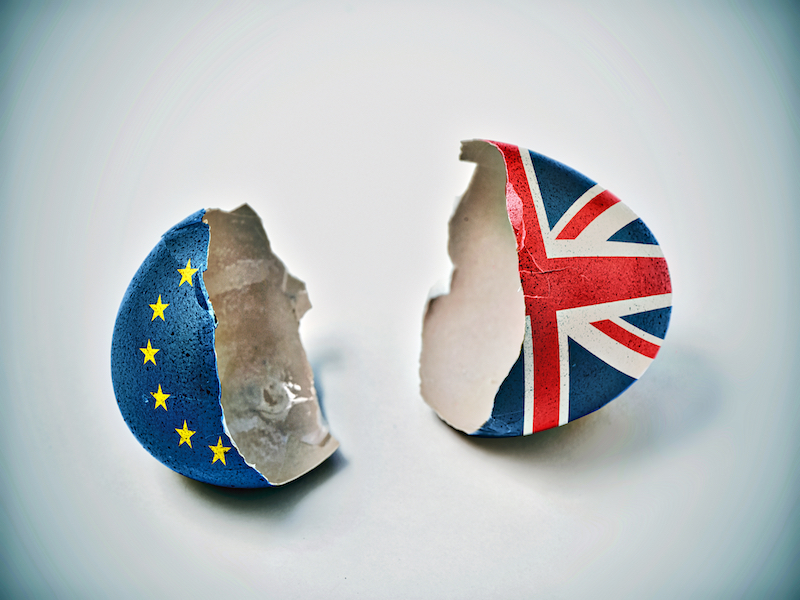Economy
Brexit Causes Britain’s Wealthiest To Lose Big

Some economists and politicians tend to criticize the capacity of the members of the world’s elite societies by trickling down economic theory.
However, Brexit has to lessen such a toll as it ensures that there is now less wealth to talk about.
It actually happened
To the shock of all, the British populace voted on Thursday to leave the European Union.
Polls had constantly put them tied just before the election, making the Remain lead.
Now, it is still far from certain that Britain will completely cut ties with the European Union.
Firstly, parliament has to approve any motion to leave the European Union, and currently, five out of six members of parliament have campaigned for Remain.
Secondly, the Leave side has been surprisingly quiet, even in victory: it’s clear even they didn’t think they would win the vote and are somewhat unprepared for the mammoth task that lies ahead.
Markets lose big
Whatever the effect of Brexit on Britain’s political future, current economic climate looks bleak indeed.
An astounding $2 trillion was wiped off of global markets in the 24 hour period following the vote.
Anyone underestimating the significance of Britain received a rude awakening.
Moreover, British voters weren’t only imposing this loss on other countries with their vote, as their own suffered greatly too.
At one point, $120 billion was wiped off of Britain’s GDP value, relegating it to the 6th largest economy in the world, behind France, though most of this was recovered afterward.
But the richest lose biggest
Sure, your mortgage value might have gone down 10%.
Terrible, terrible, yes, I completely agree.
Hold off on all spending plans for now.
Yet, this is small change to what Britain’s wealthiest lost in terms of share value thanks to Brexit.
For example, Gerald Grosvenor lost $1 billion.
He is Britain’s richest person, and his loss in value of his shareholdings represents the highest loss of the day.
While I’m sure if he’s crying it’ll be from the 6th floor of his mansion, or inside the leather seats of one of his many sports cars; a billion dollars is a hell of a lot of money.
Other notable names to have lost in the hundreds of millions are Brunco Schroder, head of Schroders money management firm, who lost $600 million, and Earl Cadogan, a land baron.
Sir Phillip Green also lost big.
He has already been in the papers recently for all the wrong reasons, embroiled in a controversy over his management of BHS, an apparel retailer that recently went bust, leaving a huge pensions black hole for its thousands of stuff.
Enough to deter staying the course?
We’ve heard a great amount of the harmful repercussions of a Brexit.
Samuel Tombs, UK economist for Pantheon Macroeconomics, calls following through on the process currently started by Thursday’s vote economic self-harm with ramifications that will be felt throughout the world.
Some winners
George Soros was one of the winners of Thursday’s result.
He invested heavily in gold, a move this website has encouraged on numerous occasions.
Most famous for betting against the Pound in 1992 and pocketing a reported £1.5 billion, he bought almost £200 million worth of gold prior to the vote and has seen a healthy rise in the value of that investment.
Europe and Britain at large
The FTSE 100 fell by a total of 500 points in just the first few minutes of trading after the Brexit announcement.
However, it later picked up and closed down on much of the ground it lost initially by closing down 199 points.
Overall, a loss of $52 billion (not the initial $120 billion mentioned earlier).
Banks were some of the hardest hit by the shock result.
Many were left head in their hands, having seen losses not experienced since the 2008 Credit Crunch when the Lehman Brothers and Northern Rock went bust.
Barclays was done 17%, while RBS was down by a similar figure.
It is important to note that the government has sizeable shares in the latter, representing the first direct loss to the taxpayer of this whole debacle.
The Sterling has sunk to its lowest value for over 30 years against the dollar and has weakened dramatically against the Euro.
What now?
It’s clear this is just the beginning.
We’ve seen the initial shock, and whilst bad, it is not the disaster of apocalyptic proportions some warned of.
But it’s bad.
Some are calling this the biggest foreign policy blunder by a Prime Minister.
The risk of severing ties with the EU is the real worry here and represents the thing scaring investors.
What will determine how markets react from now on is the ability of the Leave side to form a coherent, united front, and present a realistic plan to leave the EU and agree on terms for single market access for Britain as an associate member.
Or, the whole movement comes crashing down, and parliament votes that the whole thing was pointless, and we’ll go on as normal, and the EU will remain a 28-member club.
In between now and either of these two outcomes will prove to be a rocky road, and the markets will react accordingly.



